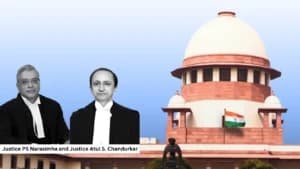The Supreme Court recently reiterated that further investigation can be directed even after the chargesheet has been filed and the trial has commenced. This decision was based on the case Hasanbhai Valibhai Qureshi v. State of Gujarat & Others, [(2004) 5 SCC 347], where the Court emphasized that the primary objective of an investigation is to uncover the truth and ensure substantial justice.
However, the Court also clarified that before ordering such an investigation, it is essential to review the available evidence and determine whether further investigation is genuinely required.
Background of the Case
In this case, a woman lodged a complaint of cruelty against her husband. Initially, in the FIR, she did not allege any harassment related to dowry demand against her in-laws (mother-in-law and sister-in-law). A chargesheet was filed only against the husband.
During her initial statement before the Trial Court, she did not mention any allegations against her in-laws. However, almost two years later, she changed her statement and accused her mother-in-law and sister-in-law of harassment.
Following this, she filed an application under Section 173(8) of the Criminal Procedure Code (CrPC), seeking further investigation regarding the cruelty charges against her in-laws. The Trial Court rejected her application, but the High Court allowed it. Aggrieved by this decision, the accused parties approached the Supreme Court.
A bench of Justices Vikram Nath, Sanjay Karol, and Sandeep Mehta found that the High Court had erred in directing a fresh investigation.
Read Also:- Supreme Court Upholds Karnataka Transport Law: Repeal of 1976 Act Valid Without Fresh Presidential Assent
The Court stated:
"Upon reviewing the available evidence, we find that the High Court grossly erred and exceeded its jurisdiction by directing a fresh investigation, completely ignoring the fact that the application under Section 173(8) CrPC was filed at a highly belated stage."
The Court emphasized that in the complainant’s initial deposition, there were no allegations against the in-laws. Even in the delayed statement, the accusations were vague.
"At the cost of repetition, it must be noted that during the trial proceedings against her husband on April 12, 2012, the complainant made no allegations against the appellants. Even in the deferred examination-in-chief recorded on March 24, 2014, only vague allegations were made against appellant No. 2 (mother-in-law).”
Additionally, the Court pointed out that the complainant had other legal remedies, such as filing an application under Section 319 CrPC, which allows the Court to summon additional accused persons based on available evidence.
Read Also:- Supreme Court Questions Tamil Nadu Governor’s Authority in Withholding Bills
"Undeniably, the complainant had the liberty to present her entire case during her examination-in-chief and request the Trial Court to summon other family members under Section 319 CrPC. If certain facts were left out, she could have filed an application under Section 311 CrPC for recalling her testimony and conducting further examination."
The Court also observed that the complainant’s in-laws, including her father-in-law, mother-in-law, sister-in-law, and brother-in-law, were residing separately from the couple. Meanwhile, the alleged incidents of cruelty took place in Bangalore, where the complainant and her husband lived together.
"There was no justification for the High Court to direct further investigation at such a delayed stage. The impugned judgment is unsustainable and is, therefore, quashed."
However, the Court granted the complainant the liberty to seek other legal remedies available under the law.
Read Also:- Supreme Court Quashes Death Penalty Over Lack of Fair Trial in Madhya Pradesh Case
Further investigation is permissible even after a chargesheet is filed and trial has commenced.
A fresh investigation should only be ordered when there is a strong legal basis.
If new facts emerge, the complainant can file applications under CrPC Sections 319 and 311.
Vague or delayed accusations may not be entertained by the Court.
This ruling sets a precedent for cases where complainants attempt to add new allegations at a later stage. The Supreme Court has once again reinforced the principle that justice must be served without undue delays or misuse of the legal system.















